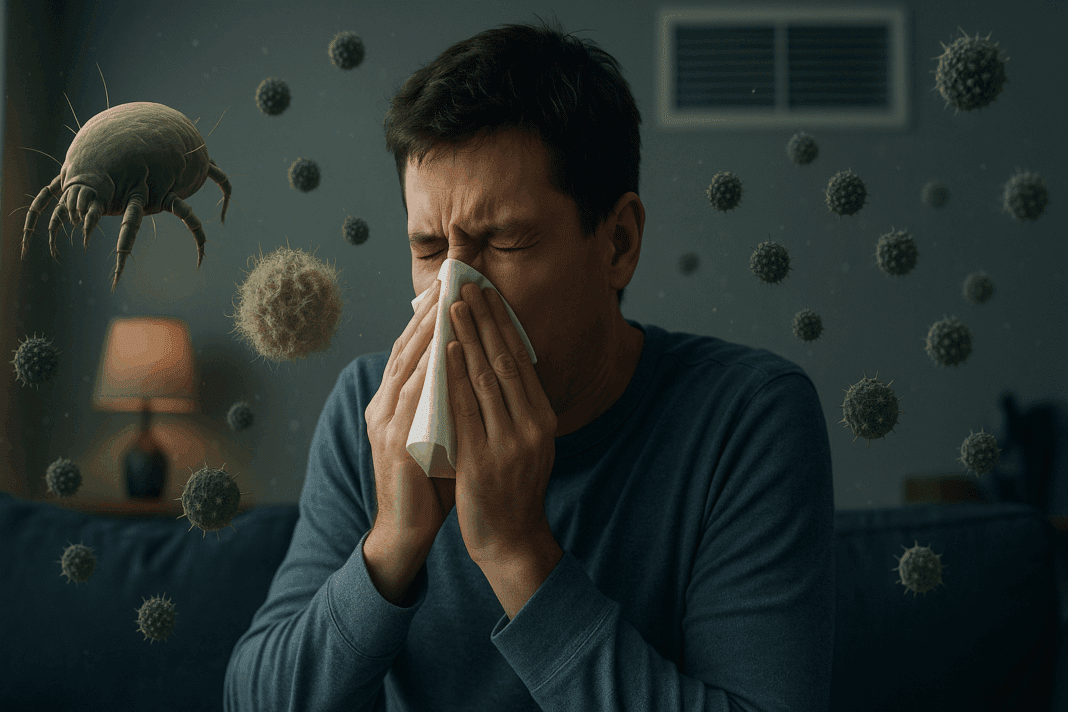Allergies are among the most common chronic health conditions worldwide, and they manifest in myriad forms, from seasonal sneezing fits to persistent skin irritations. One of the most frequently asked questions by individuals who suffer from allergic reactions is, can you have allergies year round? This question reflects a common misunderstanding that allergies only occur during specific seasons, such as spring or fall. However, a growing body of evidence reveals that many people experience allergic symptoms continuously throughout the year. These year round allergies often stem from indoor allergens or less obvious environmental triggers that persist regardless of the season. Understanding the underlying causes, triggers, and management strategies for year round allergies is critical for maintaining quality of life and long-term health.
You may also like: Essential Insights into Natural Treatment for Allergies and Sinus That Actually Work
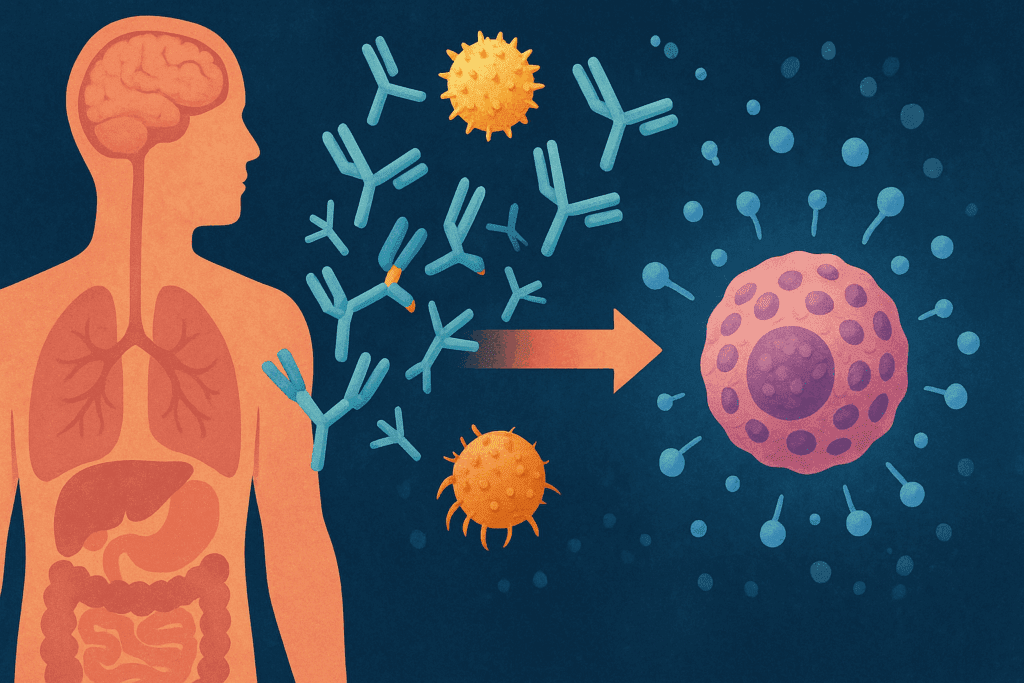
Understanding the Immune Mechanism Behind Allergies
To comprehend why allergies may persist throughout the year, it is first essential to understand how the immune system reacts during an allergic response. Allergies occur when the body’s immune system mistakenly identifies a harmless substance as a threat. In response, it produces immunoglobulin E (IgE) antibodies that trigger the release of histamine and other chemicals. These substances cause inflammation and result in symptoms like sneezing, coughing, itching, rashes, and in some cases, more severe respiratory issues.
The immune response to allergens is highly individualized. While some people react to seasonal pollen from trees, grasses, and weeds, others may develop sensitivities to indoor allergens like dust mites, mold spores, pet dander, and cockroach droppings. These indoor allergens are often present year-round, contributing to persistent allergic symptoms. Because the immune system remains constantly engaged in defending against these perceived threats, individuals with year round allergies often experience ongoing inflammation that can exacerbate other chronic conditions such as asthma or sinusitis.
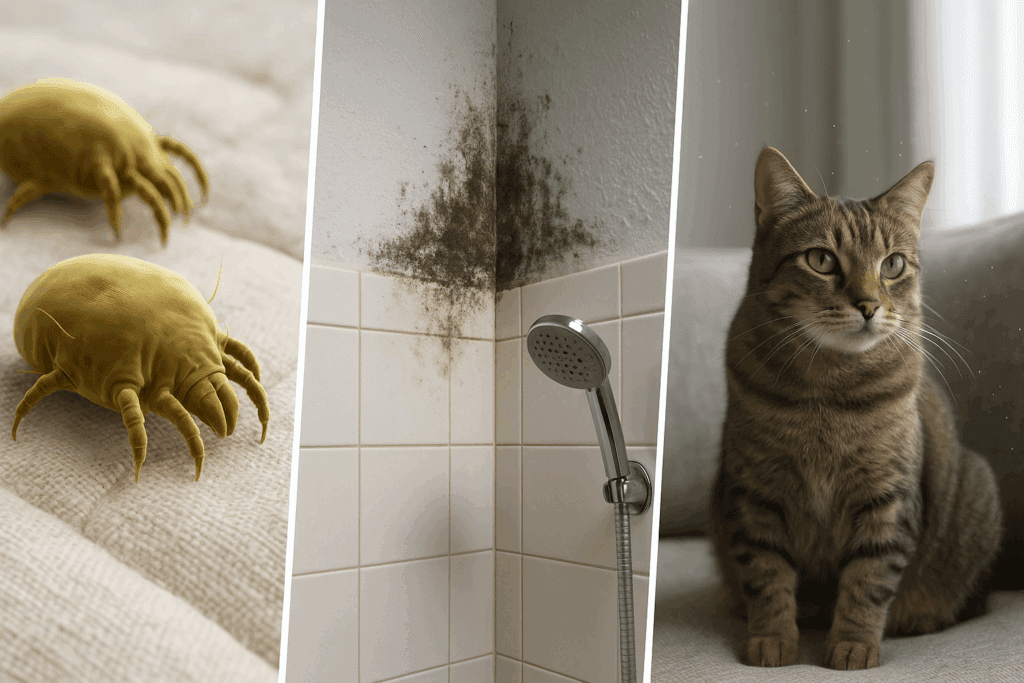
What Causes Year Round Allergies?
Year round allergies, medically referred to as perennial allergic rhinitis, are usually caused by allergens that are not confined to a particular season. Dust mites are among the most notorious culprits. These microscopic organisms thrive in warm, humid environments and are commonly found in bedding, upholstery, and carpeting. Unlike pollen, which is seasonal, dust mites remain active all year long, making them a persistent source of allergic reactions.
Mold is another prevalent cause of year round allergies. Mold spores can grow both indoors and outdoors and are particularly abundant in damp areas like basements, bathrooms, and kitchens. Certain types of mold, such as Aspergillus and Cladosporium, release spores into the air that can be inhaled and cause allergic symptoms. People who live in humid climates or poorly ventilated homes are especially susceptible.
Pet dander, consisting of tiny skin flakes, saliva, and urine from animals, also contributes to year round allergies. Contrary to popular belief, it is not the animal’s fur that causes the reaction, but the proteins found in these secretions. Cats, dogs, and even small rodents like hamsters can be sources of allergens, and the particles they shed can linger in the environment for extended periods.

Recognizing the Symptoms of Year Round Allergies
Identifying the symptoms of year round allergies is essential for accurate diagnosis and effective treatment. While the symptoms may resemble those of seasonal allergies, their persistent nature often points to a different set of triggers. Common symptoms include nasal congestion, sneezing, postnasal drip, itchy eyes, coughing, and fatigue. Some individuals may also experience skin-related symptoms like eczema or hives, especially when exposed to pet dander or mold.
The chronic nature of these symptoms can lead to complications if not properly managed. For instance, ongoing nasal inflammation can cause sinus infections or contribute to the development of nasal polyps. Persistent coughing and throat irritation may affect sleep quality and overall well-being. Individuals who have asthma may notice that their symptoms worsen in the presence of year round allergens, indicating a need for targeted intervention.
Diagnosing Year Round Allergies Accurately
Proper diagnosis is the cornerstone of effective allergy management. If you suspect that your symptoms are not confined to a specific season, it is important to consult a healthcare provider for a thorough evaluation. Allergy testing typically involves a combination of medical history, physical examination, and specific diagnostic tests such as skin prick testing or blood tests measuring IgE levels.
Skin prick testing is commonly used to identify immediate allergic reactions to a variety of allergens. During the procedure, small amounts of potential allergens are introduced to the skin, and the provider observes for any reaction. Blood tests, such as the radioallergosorbent test (RAST) or enzyme-linked immunosorbent assay (ELISA), can also be used to detect the presence of IgE antibodies in response to specific allergens.
Environmental assessments may also be recommended, particularly if indoor allergens are suspected. For example, home inspections can reveal the presence of mold, pest infestations, or pet allergens. These findings, combined with clinical data, help form a comprehensive diagnosis and inform personalized treatment plans.

Can You Have Allergies Year Round Due to Indoor Triggers?
One of the most compelling reasons why people ask, can you have allergies year round, lies in the role of indoor triggers. Indoor environments, especially those with poor air circulation and high humidity, provide an ideal breeding ground for allergens. As individuals spend a significant amount of time indoors—especially during colder months—exposure to indoor allergens increases, often leading to chronic allergic reactions.
Central heating and air conditioning systems can also play a role in circulating allergens throughout the home. Dust mites, pet dander, and mold spores can accumulate in ventilation ducts and be dispersed into living spaces when the HVAC system is in use. This continuous exposure keeps the immune system on high alert, resulting in persistent symptoms.
Cleaning habits and indoor lifestyle choices can either mitigate or exacerbate the impact of indoor allergens. For instance, carpeting can harbor dust mites and pet dander, while unwashed bedding can become a hotbed for allergens. Using air purifiers with HEPA filters, maintaining low indoor humidity levels, and regularly washing linens in hot water are effective strategies for reducing allergen load indoors.
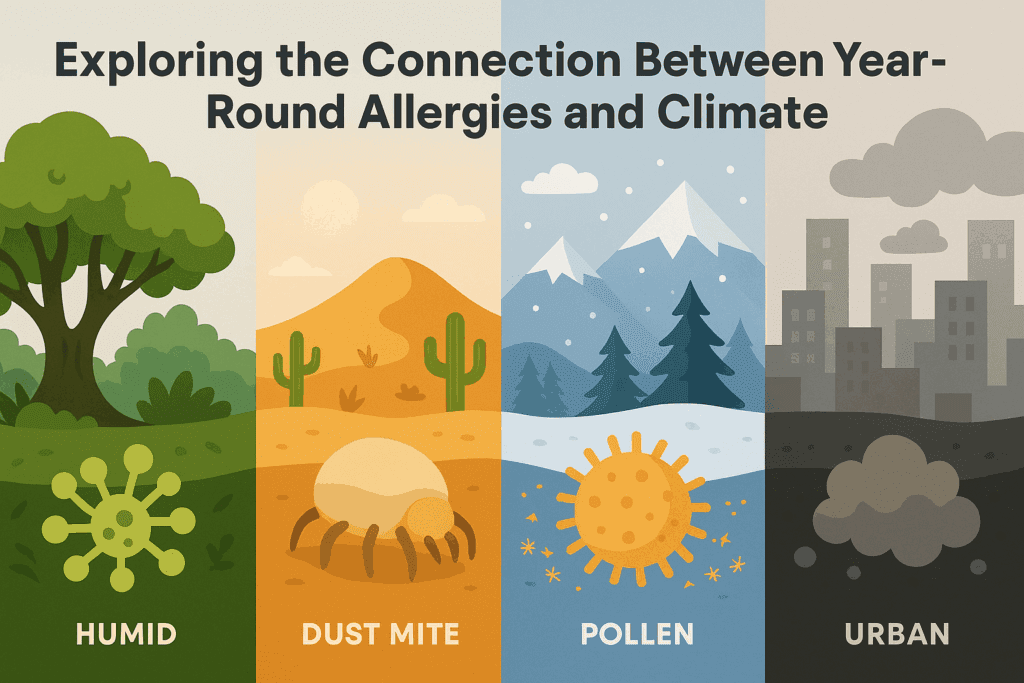
Exploring the Connection Between Year Round Allergies and Climate
Climate plays a significant role in the prevalence and severity of year round allergies. Individuals living in warm, humid regions are more likely to encounter persistent mold and dust mite issues due to the favorable conditions these organisms require. In contrast, colder climates may see an increase in indoor allergen exposure during the winter months when people stay inside and use heating systems.
Moreover, global climate change has had a profound impact on allergy patterns. Warmer temperatures can extend the growing season of allergenic plants, leading to prolonged pollen exposure in some areas. While this is primarily a concern for seasonal allergies, it also underscores the importance of understanding environmental influences on allergic conditions.
Urbanization is another contributing factor. City dwellers may experience heightened exposure to indoor pollutants, construction dust, and limited green spaces, all of which can exacerbate allergic responses. The urban heat island effect, which causes cities to be warmer than surrounding rural areas, can further intensify these conditions.
Can You Have Allergies Year Round Without Knowing the Cause?
Many individuals suffer from allergy-like symptoms without ever identifying the specific triggers. This is particularly true for year round allergies, where exposure is consistent and symptoms may become normalized over time. People may attribute their discomfort to stress, lack of sleep, or recurring colds without realizing that they are dealing with an allergic condition.
Silent allergens, such as cockroach droppings or hidden mold, often go unnoticed but can have a significant impact on health. These allergens may not produce dramatic symptoms initially but can lead to chronic inflammation and respiratory issues over time. Lack of awareness can delay diagnosis and result in prolonged suffering.
Keeping a symptom diary can help identify potential patterns and triggers. Noting the timing, location, and activities surrounding allergic episodes can provide valuable insights for healthcare providers. In some cases, allergen-specific testing is the only reliable way to pinpoint the cause, especially when multiple allergens are involved.
The Importance of Year Round Allergy Management Plans
Managing year round allergies requires a multifaceted approach that addresses both symptom relief and allergen avoidance. Over-the-counter antihistamines, decongestants, and corticosteroid nasal sprays can provide temporary relief but may not be sufficient for long-term management. Prescription medications or allergy shots (immunotherapy) may be recommended for individuals with severe or persistent symptoms.
Immunotherapy involves administering gradually increasing doses of allergens to build tolerance over time. This approach can significantly reduce sensitivity and improve quality of life for people with year round allergies. Sublingual immunotherapy, in which the allergen is placed under the tongue, is an alternative to traditional allergy shots and has shown promise in treating certain types of perennial allergies.
Environmental control remains a cornerstone of allergy management. Identifying and mitigating sources of indoor allergens, such as using allergen-proof mattress covers, installing dehumidifiers, and reducing pet exposure, can dramatically reduce symptoms. Regular maintenance of HVAC systems and use of high-efficiency filters are also essential strategies.
Can You Have Allergies Year Round Even If You Live in a Clean Home?
It is a common misconception that cleanliness alone can eliminate allergens from the home. While good hygiene practices do help reduce allergen levels, even the cleanest homes can harbor hidden allergens. For example, dust mites thrive in microscopic crevices that are difficult to clean, and mold can grow behind walls or under carpets where it remains undetected.
Pet dander is another example of an allergen that persists despite regular cleaning. Even if pets are bathed and groomed frequently, the proteins responsible for allergic reactions can linger in the air and settle on surfaces. Additionally, allergens can be introduced from outside sources, such as pollen carried indoors on clothing or shoes.
Regular professional cleaning, thorough ventilation, and the use of allergen-reducing products can help manage exposure. However, it is important to recognize that no environment is entirely allergen-free. The goal is not to eliminate all allergens but to reduce them to levels that do not provoke symptoms.
The Psychological and Emotional Impact of Year Round Allergies
Chronic health conditions often take a toll not just on the body but also on mental and emotional well-being. Year round allergies, with their persistent symptoms and lifestyle limitations, can lead to frustration, anxiety, and even depression. The constant need to manage symptoms, avoid triggers, and maintain vigilance can be emotionally exhausting.
Sleep disturbances caused by nasal congestion or coughing can further exacerbate mental health issues, contributing to fatigue and irritability. Social activities may also be limited, particularly for individuals allergic to common triggers like pets or perfumes. The sense of isolation or burden can weigh heavily on affected individuals.
Addressing the emotional impact of allergies is an important part of holistic care. Support groups, counseling, and stress management techniques can provide valuable coping mechanisms. Open communication with healthcare providers about the emotional aspects of chronic allergy management is essential for comprehensive treatment.
Can You Have Allergies Year Round if You’ve Never Had Them Before?
Another intriguing dimension of allergy development is the onset of symptoms in adulthood. Many people assume that allergies develop only in childhood, but adult-onset allergies are increasingly common. Changes in environment, lifestyle, or immune function can trigger new sensitivities, even in individuals who have never previously experienced allergic reactions.
For example, moving to a new region with different flora and fauna can expose someone to unfamiliar allergens. Similarly, changes in indoor air quality, exposure to new pets, or occupational hazards can initiate allergic responses. Hormonal changes, medications, and chronic stress can also alter immune responses, making the body more susceptible to allergens.
Recognizing that allergies can emerge at any stage of life underscores the importance of monitoring symptoms and seeking timely medical advice. Dismissing persistent symptoms as a temporary issue can delay diagnosis and exacerbate discomfort. Early intervention and lifestyle modifications can make a significant difference in managing adult-onset allergies.
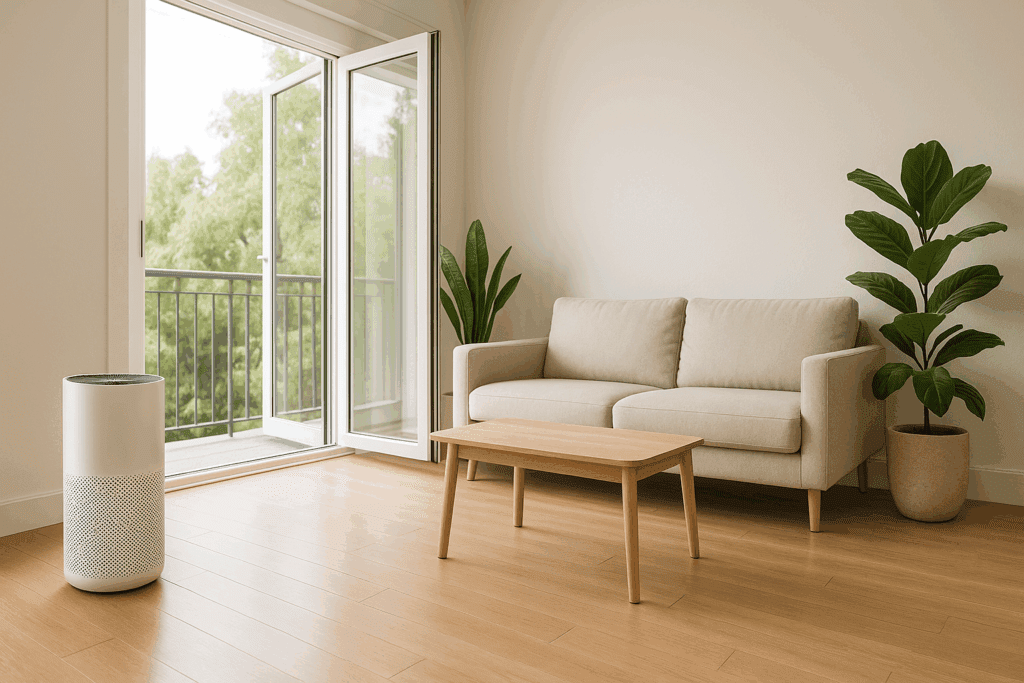
How to Prevent Year Round Allergies from Worsening Over Time
Preventing the progression of year round allergies involves proactive measures that address both symptom control and long-term health. Adherence to treatment regimens, regular follow-up appointments, and lifestyle adjustments are critical components of prevention. Ignoring symptoms or relying solely on over-the-counter medications can lead to chronic inflammation and complications.
Maintaining a healthy indoor environment is perhaps the most effective preventive strategy. This includes reducing humidity, using non-toxic cleaning products, avoiding smoking indoors, and minimizing the use of scented candles or air fresheners that may trigger reactions. Investing in high-quality air filtration systems can also reduce airborne allergens and improve overall air quality.
Nutritional support plays an indirect but important role in managing allergies. A diet rich in anti-inflammatory foods, such as fruits, vegetables, omega-3 fatty acids, and probiotics, can support immune health. Hydration, regular exercise, and stress management further enhance the body’s resilience against allergens.
Frequently Asked Questions About Year Round Allergies
Can you have allergies year round even if no one else in your household does?
Yes, it’s entirely possible to experience year round allergies even when others in your immediate environment do not. Allergic responses are highly individualized and influenced by genetic predisposition, immune system variability, and personal exposure history. You might have developed sensitivities to specific allergens like mold spores or pet dander that others in your household tolerate without issue. Additionally, personal habits—such as time spent in certain rooms, routines involving pet interaction, or even dietary influences—can influence the development or persistence of allergic symptoms. This discrepancy underscores the importance of individualized testing and not dismissing symptoms simply because others don’t share them.
How can you distinguish between year round allergies and chronic sinusitis?
Although both conditions involve nasal congestion, postnasal drip, and facial pressure, year round allergies tend to come with hallmark features like itching, sneezing, and watery eyes. Chronic sinusitis, by contrast, often includes symptoms like thick nasal discharge, facial pain, and a decreased sense of smell without the itching typically associated with allergic reactions. A key differentiator is that allergy symptoms often fluctuate in response to specific environmental exposures, while sinusitis symptoms may persist with less variation. Diagnostic tools such as nasal endoscopy or a CT scan can help clarify the cause, and allergy testing can rule in or out specific allergens as the culprits. Understanding the nuanced differences is essential for ensuring that the treatment approach targets the correct underlying issue.
Can you have allergies year round and still benefit from seasonal allergy treatments?
Absolutely—many treatments designed for seasonal allergies can provide relief from year round allergies, particularly those that target histamine response or inflammation. However, year round allergies often require more consistent and sustained management strategies. For example, nasal corticosteroids or antihistamines may be used daily instead of seasonally, and environmental control measures become even more crucial. Immunotherapy, including allergy shots or sublingual tablets, can be especially effective when symptoms persist beyond a few months each year. The goal is to not only alleviate symptoms but also to retrain the immune system’s overreaction to allergens, which is more critical when exposure is ongoing throughout the year.
Can lifestyle and dietary choices influence the severity of year round allergies?
Yes, lifestyle and diet can play a subtle yet meaningful role in how your body reacts to allergens. Diets high in anti-inflammatory foods such as leafy greens, omega-3 fatty acids, and fermented probiotics may help modulate immune responses. In contrast, processed foods and those high in sugar can contribute to systemic inflammation, potentially intensifying allergic reactions. Additionally, habits such as smoking, poor sleep hygiene, and excessive alcohol consumption can weaken immune defenses or irritate respiratory tissues, making allergic responses more severe. Incorporating practices like regular exercise and stress-reduction techniques, such as mindfulness or yoga, can further enhance your body’s resilience against allergic triggers. While these changes won’t replace medical treatment, they can meaningfully support overall allergy management.
What innovations are emerging in the treatment of year round allergies?
In recent years, allergy treatment has advanced significantly with innovations like biologic therapies targeting specific immune pathways, such as anti-IgE medications like omalizumab. These treatments offer hope for individuals with severe or treatment-resistant year round allergies. Additionally, wearable technology and smartphone-connected air quality monitors allow users to track exposure to indoor and outdoor allergens in real time, enabling proactive avoidance strategies. The field of precision medicine is also evolving, allowing for individualized allergy treatment plans based on genetic and immunological profiling. As research progresses, the integration of machine learning and AI into allergy prediction and prevention could further personalize and enhance care. These advancements signify a promising future for those living with chronic allergic conditions.
Can you have allergies year round that are triggered by your occupation?
Yes, occupational exposure is a frequently overlooked cause of persistent allergic symptoms. Individuals working in environments such as salons, bakeries, laboratories, healthcare settings, or even offices with poor ventilation can be continuously exposed to allergens like flour dust, chemical fumes, latex, or indoor mold. These exposures can lead to a condition known as occupational rhinitis or asthma, where the symptoms mirror typical allergies but are tied directly to the work environment. Identifying and mitigating these exposures can be challenging, often requiring collaboration with occupational health professionals. Protective equipment, improved ventilation, and even job reassignment may be necessary when year round allergies are occupationally induced.
Can children develop year round allergies differently than adults?
Children often display year round allergies differently due to their developing immune systems and smaller airways. Symptoms may include frequent ear infections, chronic nasal congestion, or behavioral changes like irritability and sleep disturbances. Unlike adults, children may not be able to articulate what they’re feeling, making symptoms harder to diagnose without parental observation and medical evaluation. Environmental allergens such as dust mites or pet dander in homes and schools can lead to persistent symptoms if not adequately addressed. Pediatric allergy management often focuses on gentle yet effective strategies, including environmental modifications and age-appropriate medications, with immunotherapy considered for long-term care in moderate to severe cases.
Can you have allergies year round without traditional symptoms like sneezing or congestion?
Yes, not all allergic responses manifest through typical respiratory symptoms. Some people experience what are called “atypical allergy symptoms,” including chronic fatigue, headaches, brain fog, skin irritation, or gastrointestinal disturbances like bloating and cramping. These non-classical symptoms may be linked to low-level, ongoing inflammation caused by undetected allergens. Individuals with underlying conditions like eczema or irritable bowel syndrome may find that their symptoms worsen due to unnoticed allergic triggers. Because these symptoms are less obvious, it is essential to take a holistic approach to diagnosis, possibly including elimination diets, environmental audits, and more nuanced allergy testing to uncover the underlying causes.
Why do year round allergies sometimes worsen in the winter months?
Although one might assume allergy symptoms would ease during colder seasons, winter can actually intensify year round allergies due to increased time spent indoors. Homes are often sealed tightly to retain heat, which also traps allergens like dust mites, pet dander, and mold. Heating systems can further dry out nasal passages, reducing the body’s ability to filter airborne irritants effectively. Additionally, the lack of fresh air exchange can create a concentrated environment for allergens to thrive. Simple steps like using HEPA filters, maintaining indoor humidity between 30–50%, and ensuring proper ventilation can help reduce allergen buildup during winter months.
Can You Have Allergies Year Round Without Realizing the Psychological Impact?
Absolutely, and the emotional toll of living with year round allergies is often underestimated. Persistent symptoms can interfere with sleep, diminish concentration, and cause chronic frustration or irritability, all of which impact mental well-being. Over time, the daily burden of managing symptoms may contribute to anxiety, especially when individuals feel they must always be on guard against potential triggers. In more severe cases, long-standing discomfort can lead to depressive symptoms, particularly if the individual feels socially restricted or misunderstood. Addressing mental health in conjunction with physical symptoms through counseling, mindfulness practices, or support groups can offer a more holistic and sustainable path to well-being for those coping with year round allergies.
Final Thoughts: Understanding Why You Can Have Allergies Year Round Matters
The question, can you have allergies year round, is not only valid but increasingly relevant in today’s complex environmental and lifestyle landscape. Year round allergies are more than just a nuisance; they represent a chronic health challenge that requires continuous management, informed awareness, and tailored care. From understanding the role of indoor allergens and climate influences to recognizing the emotional impact and adult-onset cases, it is clear that year round allergies demand a nuanced approach.
Empowering individuals with accurate information, expert guidance, and practical tools is essential for effective allergy management. Whether it is through environmental modifications, medical interventions, or emotional support, comprehensive care can significantly improve quality of life. By acknowledging the reality of year round allergies and addressing them with evidence-based strategies, individuals can take control of their health and reduce the burden of chronic symptoms.
In a world where our environments are constantly changing, being proactive about allergy awareness is more important than ever. With the right knowledge and support, managing year round allergies becomes not just possible, but achievable.
Further Reading:
Year-Round Allergies: Common Causes and Symptoms
Why Do I Have Allergies All Year Long?
Seasonal vs. Year-Round Allergies: Differences, Symptoms, and Relief Tips


